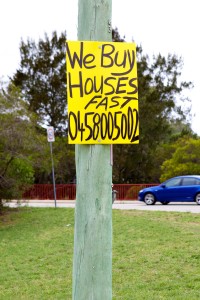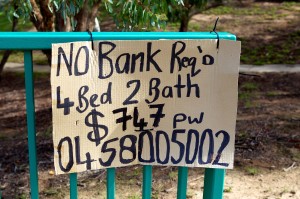House prices in Australia are high. “No shit, Sherlock,” I hear you say, “Tell us something we didn’t know.” Ok, um, Kevin Rudd actually would like to be PM again. Already knew that one too, eh? Well I will tell you something you don’t know about Aussie housing, but first, some basic economics.
The price of everything from a loaf of bread to illegal drugs is dictated by supply and demand. Where you have an increase in demand for a product, like a Justin Bieber album (God knows why there is any demand for him), the price will go up so long as the supply of that product remains stable. Where there is more supply than people wanting to purchase, the price goes down (just you wait and see, Justin). For Aussie housing, exactly the same rule applies.
For many years there has been a large demand for houses, units, townhouses and land in Australia due to a couple of factors, mainly to increases in population from high levels of migration and our fertility rate. Our fertility rate isn’t huge (we’re rooting only slightly more than we’re dying), and migration accounts for between 200,000 – 300,000 more residents every year. As we don’t build enough new houses, to the tune of about 25,000 a year, we currently have an undersupply of about 200,000 homes. So say the economists. Seems simple enough, but I reckon that there are a few things being ignored.
The first is that, thanks to McMansions, the average size of a house today is twice the average size from 1950, and there are heaps more bedrooms. So there is enough room at the parents’ place for many gen Ys to be happy enough to stay, and sometimes to stay there with their partner. After all, the undersupply of housing in Australia has not led to an incredible increase in homeless people.
The other bit overlooked by economists is about the migration figures. Given that there is a large number of people coming from countries with higher population densities than in Australia, it’s quite plausible that migrants are happy living in more cramped conditions than the average Aussie. For example, a guy moving from Japan, where the average amount of housing is just 47 square metres per person, would gladly move into a “cramped” sharehouse in Australia where the average floor space is about 84 square metres per person.
So an increase in migration may not equate to a corresponding undersupply in housing, especially when the economies in other countries start to pick up and those countries call for skilled migrants. Many a skilled worker has left Australia for more money overseas.
I’m not predicting a migrant-exodus-led house price crash in Australia, but I am saying that I believe the simple figures that you hear about on the news need looking at more closely, especially if the undersupply problem is addressed by an initiative to build lots more houses, and whilst ever the people pushing the undersupply line have a vested interest in keeping house prices inflated.
In the end, house prices simply can’t continue to rise as they have over recent years as the average income earner, and above average income earner, will not be able to afford to buy one.








